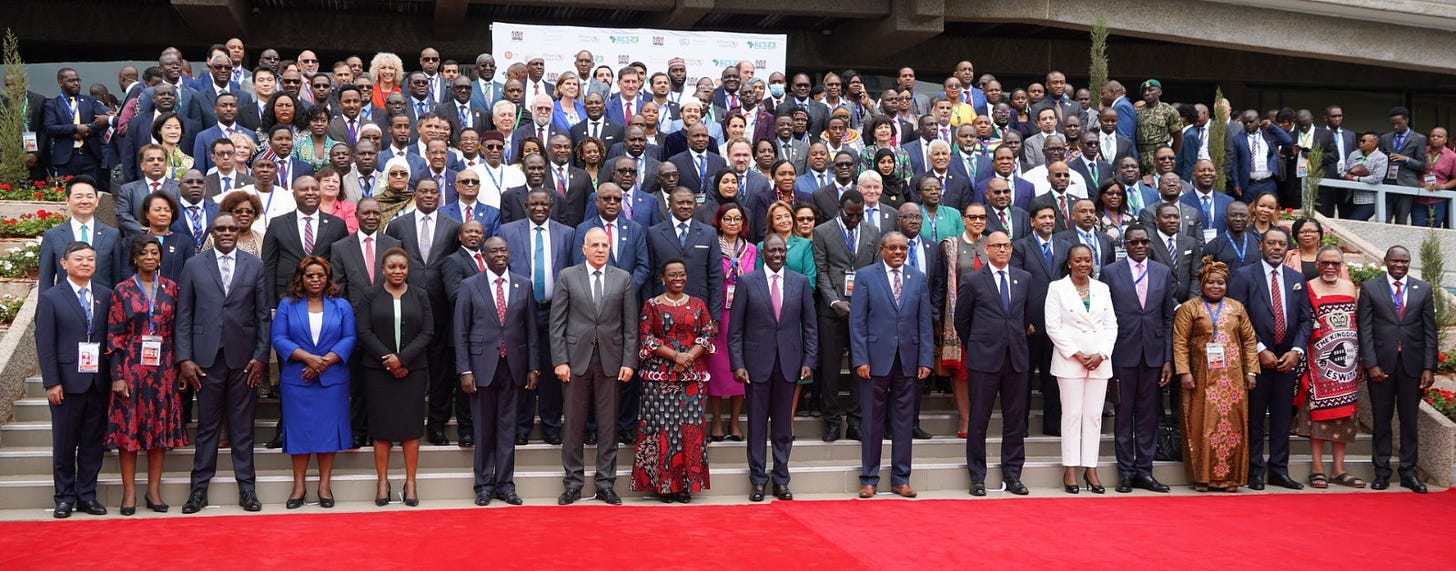Africa Climate Week 2023: Uniting for Climate Action in Nairobi
It is the first of four Regional Climate Weeks in 2023, providing a platform to showcase ongoing projects, policies, and practices that inspire positive change in the fight against climate change.
Nairobi, Kenya - Africa Climate Week 2023, to be held in Nairobi, Kenya from September 4th to 8th, has emerged as a critical platform for addressing the pressing issue of climate change, writes Baboloki Semele.
The event brought together a diverse group of stakeholders, including government officials, environmentalists, scientists, youth activists, and global leaders, to engage in vital discussions and collaboration on climate action in Africa.
Africa is one of the regions most vulnerable to the devastating impacts of climate change, with rising temperatures, prolonged droughts, extreme weather events, and sea-level rise threatening food security, water resources, and economic stability across the continent.
However, Africa also possesses abundant natural resources, innovation, and untapped potential for sustainable development.
Africa Climate Week 2023 recognizes that tackling climate change is not merely an obligation but a unique opportunity to transform economies, protect ecosystems, and enhance the lives of millions.
The event has focused on several key themes, including:
1. Nature-Based Solutions: Africa boasts some of the world's most diverse ecosystems. Discussions have revolved around the critical importance of safeguarding and restoring these ecosystems to sequester carbon, enhance resilience, and promote sustainable development. Topics include afforestation, reforestation, and sustainable land management.
2. Energy Transition: Many African nations have demonstrated their commitment to transitioning to clean energy sources, such as solar and wind power. Discussions in this thematic area have addressed the challenges and opportunities of scaling up renewable energy projects.
3. Youth Activism: Africa Climate Week 2023 has celebrated the active involvement of youth activists and highlighted their role as catalysts for change. Youth-led initiatives, innovations, and calls for action have taken center stage, underscoring the urgency of climate action.
4. Climate Financing: Delegates have observed that financing climate adaptation and mitigation efforts remains a critical challenge for many African nations. The event has explored innovative financing mechanisms, including public-private partnerships and green bonds, to bridge the funding gap.
Moreover, Africa Climate Week aims to build momentum toward positive and impactful outcomes at the UN Climate Change Conference COP28 in Dubai, United Arab Emirates (UAE).
COP28 represents the conclusion of the first Global Stocktake, a crucial opportunity to critically assess the world's progress on climate action and chart a course forward to limit global warming to 1.5°C. Scaling up climate finance, bolstering adaptation support, and operationalizing the fund for loss and damage are key priorities for the UAE.
President William Ruto of Kenya emphasized Africa's commitment to addressing climate change, highlighting the continent's vast potential in wind and solar energy, which can drive sustainable industrialization, create jobs, and protect local economies.
Ruto called for finance and technology support for developing countries and expressed the aim to unify African voices to carry the outcomes of these events to COP28 and beyond.
Africa may have significantly lower per capita emissions than the global average, but it bears a disproportionate burden of rising global temperatures and escalating climate consequences, including droughts, desertification, cyclones, food shortages, displacement, and migration.
Yet, Africa is well-endowed with resources like renewable energy, minerals, agriculture, and natural capital, poised to lead in the transition to green development.
UN Secretary-General António Guterres emphasized the need for global action to address climate extremes and hailed Africa's potential to lead the way in renewable energy.
Simon Stiell, Executive Secretary of UN Climate Change, underscored the global responsibility to find sustainable ways of development, ensuring that African nations can lead in action and ambition.
The discussions at Africa Climate Week will inform the global stocktake, identifying challenges, barriers, solutions, and opportunities for climate action and support within the African context.
Africa Climate Week offers a timely opportunity for regional stakeholders to exchange insights on overcoming barriers and realizing opportunities in different countries. It showcases how Africa's industrial growth can align with the climate goals of the Paris Agreement, promoting economic progress while mitigating environmental impacts.
Inger Andersen, Executive Director of the UN Environment Programme, stressed the importance of Africa Climate Week in accelerating climate action and empowering Africa to become a green leader and economic powerhouse.
Achim Steiner, Administrator of the UN Development Programme, highlighted the far-reaching impacts of climate change on economies and livelihoods.
He emphasized the need for enhanced collaboration to integrate climate considerations into economic and development planning, ensuring inclusive, sustainable growth through low-emissions pathways.
While opportunities for cooperation abound across African borders, sectors, and disciplines, effective climate action requires active engagement from all sectors. Governments and multilateral institutions play central roles, but civil society, academia, local communities, and the private sector are crucial contributors.
Axel van Trotsenburg, Senior Managing Director of the World Bank, emphasized the role of clean energy in Africa's sustainable growth, poverty alleviation, and job creation.
He highlighted the need for financing to flow and support countries in transitioning to low-carbon and clean energy solutions, positioning Africa as a key player in the new climate economy.
Africa Climate Week 2023 seeks to amplify the voices of African Parties at COP28, fostering meaningful shifts in regional and global climate action.
It is the first of four Regional Climate Weeks in 2023, providing a platform to showcase ongoing projects, policies, and practices that inspire positive change in the fight against climate change.



